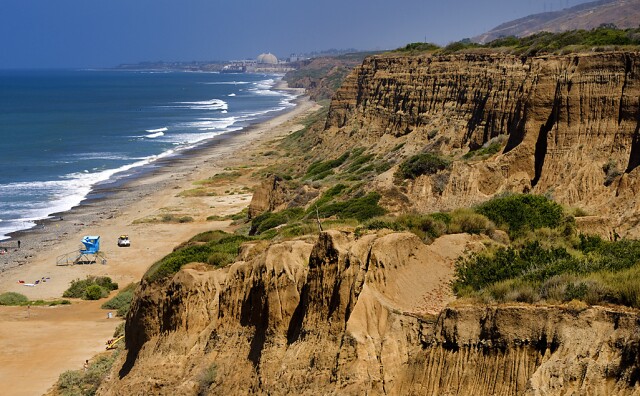All Of SoCal Is Now In A (Worse) Drought Emergency

Topline:
The Metropolitan Water District of Southern California declared the whole region to be in a drought emergency. Last April, the agency declared a drought emergency for six of its member agencies, including the Los Angeles DWP, triggering the current mandatory outdoor watering restrictions. This new declaration refers to all 26 of its member agencies and could lead to more severe water rules by April.
Why it matters: California is likely to enter its fourth consecutive year of extreme drought. The last three years have been the driest in the state's recorded history, made even drier by a changing climate.
The backstory: When the MWD declared a water shortage emergency last April, it was targeting municipalities mostly dependent on the State Water Project, which pipes water from Northern California to Southern California. The snowmelt and rain that feed those northern California reservoirs have faced historic lows in recent years.
Colorado River: The MWD supplies water from Northern California and the Colorado River to 19 million people in Southern California. The agency is now calling for an increase in conservation efforts in cities that rely more heavily on the Colorado River. The MWD usually relies more on Colorado River reserves during dry years, but ongoing megadrought and nearly a century of overuse has stretched the river too thin.
What's next: Local agencies will set their own conservation rules, because different cities can have very different water supplies. By April, the MWD will assess whether it will require additional mandatory restrictions.
-
Sandhill cranes are returning to the Lake Tahoe basin after a century long hiatus in what many say is a conservation success story.
-
Jackie’s partner, Shadow, refuses to abandon their unviable eggs, despite her attempts to nudge him along.
-
We do have some of the same types of buildings here.
-
Switching to an electric heat pump water heater can save you money and help the state avoid power outages.
-
The state's parks department is working with stakeholders, including the military, to rebuild the San Onofre road, but no timeline has been given.
-
Built in 1951, the glass-walled chapel is one of L.A.’s few national historic landmarks. This isn’t the first time it has been damaged by landslides.









